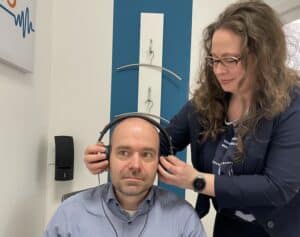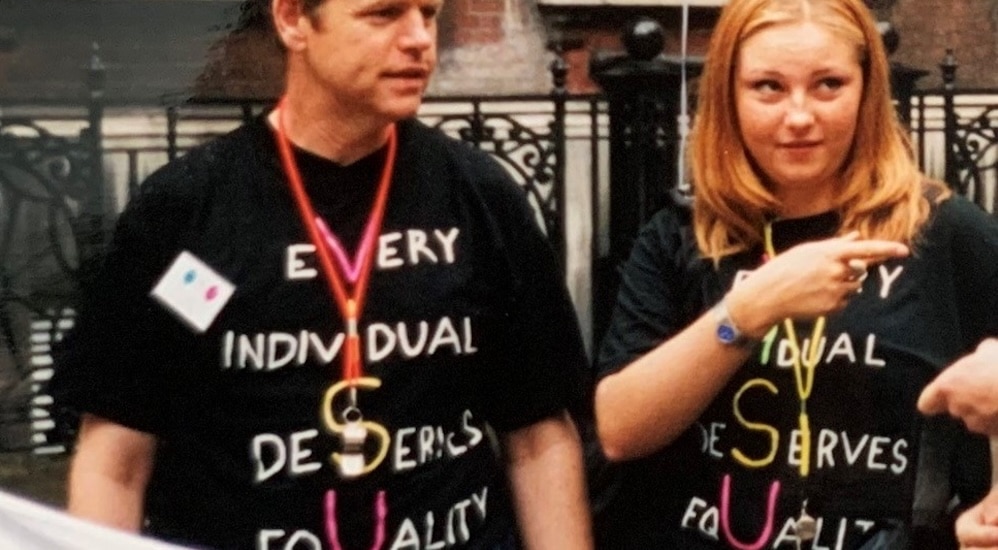German firm finds unique selling point through a diabetes-focused hearing test
Research suggesting that people with diabetes have a significantly increased risk of hearing damage has inspired a company in Germany to develop an exclusive offer for its some 490 members: a hearing test for diabetics.

According to the UK charity Diabetes UK, the nation has more than five million people currently living with diabetes, an all-time high. And an additional 850,000 people could be living with the disease yet to be diagnosed.
But it is in Germany, where constantly increasing cases have risen by more than a third in the last 25 years – to around 6.5 million – where a company called Individual Akustiker Service (IAS) is marketing a special hearing test for diabetics.
The test is carried out in a hearing aid store. There is also a mobile version as a self-test on the iPad. It can be used, for example, in pharmacies or GP practices. Developed by audiological experts Thomas Müller and Kristof Becker, this screening is more suitable for diabetes patients than the usual hearing tests. Fluctuations in hearing ability or reduced ability to concentrate are taken into account, says Jürgen Leisten who, along with Tannassia Reuber, heads up the IAS.
The test is a protected brand – auDIAtrie – the hearing test for diabetics, explained in full on the website www.audiatrie-info.com, where you can find local audiologists who can carry it out, as well as download a test coupon.

© MS Hearing test in an IAS partner specialist store.
Jürgen Leisten explained that because diabetes patients find it difficult to concentrate intensely, the normal procedure of a hearing test is reversed: tones do not begin in the inaudible range but are played initially so that they can be fully audible. “The test signal does not become louder, but quieter,” said Leisten. “We also don’t use sine wave tones because you have to concentrate a lot to perceive them. Instead, narrowband noise is used, as is also known from loudness scaling,” he continued. “We also take into account that acoustic perception can fluctuate in people with diabetes – for example as a result of unfavorable blood sugar levels, stress or disturbing background noise. The noise is therefore played back in such a way that any threshold losses are taken into account.”
Leisten refers to several international studies 1,2. that, he says, show that people with diabetes are twice as likely to have hearing loss as others. This applies to both type 1 and type 2 diabetes, but he stresses that research is ongoing. “There is currently no exact explanation for this. However, there is a theory that has numerous advocates: If blood sugar levels are elevated over a long period of time, tiny nerves and blood vessels in the inner ear are no longer adequately supplied with blood and oxygen. If the undersupply continues, nerves and blood vessels become damaged. This affects hearing. This theory is supported by evidence from a study from 2006. 3 According to this, type 1 diabetes could lead to damage to the cochlea, the side walls of the cochlea and the outer hair cells degenerate.”
1 Kathleen E. Bainbridge, PhD, MPH, Howard J. Hoffman, MA, Catherine C. Cowie, PhD, MPH, Diabetes and Hearing Impairment in the United States: Audiometric Evidence from the National Health and Nutrition Examination Survey, 1999 to 2004, https://doi.org/10.7326/0003-4819-149-1-200807010-00231
2 Chika Horikawa et. al. Diabetes and Risk of Hearing Impairment in Adults: A Meta-Analysis, J Clin Endocrinol Metab, January 2013, 98(1):51–58, jcem.endojournals.org
3 Hisaki Fukushima et. al. Effects of Type 2 Diabetes Mellitus on Cochlear Structure in Humans: Arch Otolaryngol Head Neck Surg. 2006;132(9):934-938. doi:10.1001/archotol.132.9.934
Source: Audio Infos Germany Issue 276 March 2024


